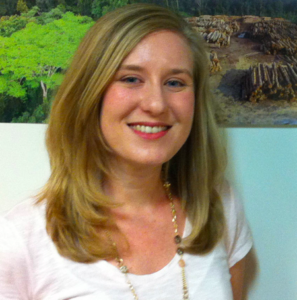 Amy Clanin is an educator, trainer, and catalyst for innovation and collaboration in conservation education. She is the Founder and Executive Director of Primate Education Network (PEN) and has more than 15 years of experience in designing and delivering conservation education programs for zoos, sanctuaries, schools, and local communities in primate range countries. Amy is a strong advocate for community-based conservation educators, who inspire behavior change and protection of the world’s most diverse and threatened ecosystems where primates serve as flagship species.
Amy Clanin is an educator, trainer, and catalyst for innovation and collaboration in conservation education. She is the Founder and Executive Director of Primate Education Network (PEN) and has more than 15 years of experience in designing and delivering conservation education programs for zoos, sanctuaries, schools, and local communities in primate range countries. Amy is a strong advocate for community-based conservation educators, who inspire behavior change and protection of the world’s most diverse and threatened ecosystems where primates serve as flagship species.
How did you become involved in your current career?
I like to say that my mom had something to do with creating my destiny. When she went into labor with me, she refused to go to the hospital until she watched the end of the King Kong movie. With degrees in Primate Behavior & Ecology and Anthropology, my commitment to conservation education began as a guide at the Knoxville Zoo and the Chimpanzee and Human Communication Institute. I also taught at Smithsonian’s National Zoo, led an education project on chimpanzees as a Peace Corps Volunteer in Senegal, and worked with primate conservation organizations in Borneo, Uganda, Rwanda, and the Democratic Republic of the Congo.
PEN was a long time in the making. My ideas for the network evolved over a decade. I spent more than five years working on operations, program management, and fundraising at non-profit conservation organizations in Washington, D.C. I wanted to utilize my expertise, passion, and entrepreneurial spirit to have more impact and solve systemic problems in primate conservation education. Throughout my career, I saw my colleagues in primate conservation education consistently encounter similar challenges, such as a lack of expertise, resources, and collaboration – just to name a few. In 2012, I combined my experience in teaching and non-profit management to establish PEN and address three needs of conservation educators: connections, resources, and training. PEN leverages local capacity and partners with multiple stakeholders to accelerate collaboration and solve unique regional conservation challenges through customized online tools and resources, as well as offline training workshops in Latin America, Africa, and Asia. As PEN’s Executive Director, I lead a dedicated and dynamic team, who share a common conviction and passion for primate conservation education. This has become the fuel for PEN’s growth and success.
What environmental issues are of most concern to you?
More than half of the world’s primate species and subspecies – in over 90 countries – are threatened with extinction. As a result of human activities, primates are threatened by habitat loss and fragmentation, poaching, infectious disease, and the illegal bushmeat and pet trades.
Primates offer tremendous conservation value for many different reasons. They serve as flagship species for entire ecosystems. Some of the world’s most diverse ecosystems, including the Congo Basin and Amazon, have the largest and most diverse primate populations. Primates play a critically important role as seed dispersers in regenerating and maintaining the health of our planet’s forests.
What do you think are some challenges and opportunities facing women in the environmental movement today?
It is a critical time for women to get involved in the environmental movement. The world needs leaders who are more collaborative, compassionate, and empathetic. Women have always been uniquely qualified for this and we’ve accomplished a lot to protect the environment. However, we must do more to support each other, particularly to address one of our greatest challenges, which is maintaining a work-life balance. It is equally important for women to prioritize our causes and our own well-being. From experience, I can say that this especially rings true for entrepreneurs. A few things I’ve learned after starting my own non-profit is not to let my organization drive personal priorities, disconnect when I can, put myself first once in a while, find a strong support system, spend time with the people I love, and to take care of my health. The distinction between work and life can disappear, especially when you work from home. If you can follow these basic principles, you will find it easier to serve your cause.
What are your suggestions on how WEN members can become more involved in your sector and the environmental movement?
There are so many ways WEN members can get involved! For example:
- Volunteer your time and talent locally or abroad to help non-profit organizations like PEN achieve our conservation goals.
- Recycle your cell phones to reduce demand for mining in primate habitat.
- Avoid anything with palm oil unless it is certifiably deforestation-free.
- And teach others to respect and care for the environment and all living things on Earth. Compassion is contagious!
